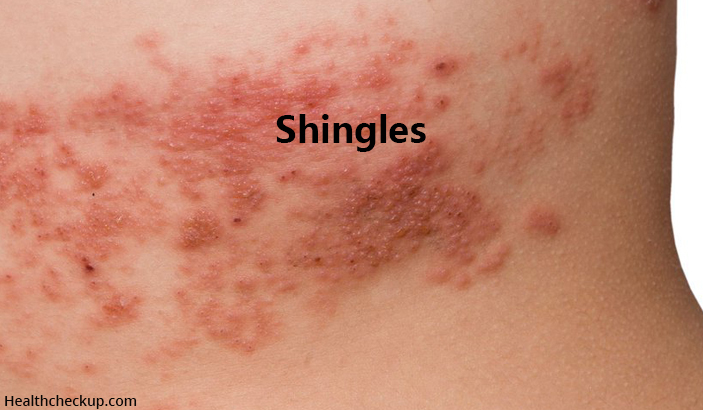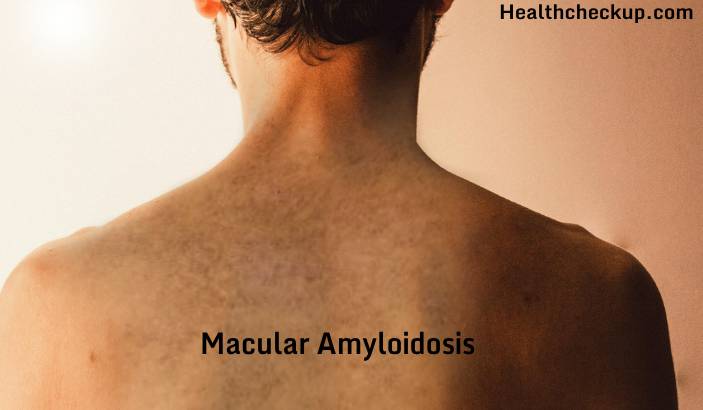Shingles also referred as Herpes Zoster, is a painful skin rash infection of a nerve area caused by the varicella zoster virus. Varicella Zoster Virus (VZV) is the same that causes chicken pox. After the chicken pox treatment, the Varicella Zoster Virus may live in a dormant state in the nerve cell system of the spine. Anyone with a history of chicken pox can be infected by Shingles. Shingle usually appears on a small portion of a face or body in a strip or a band. Shingles are majorly common among older individuals above the age of 50 and individuals with weak immune system.
Shingles are usually not caused again when one faces it once, but in some cases, it has been observed twice. This may be due to a weak immune system because of stress, injury or certain medications.
Usually, individuals above the age of 60, having diseases related to a weakening of immune systems like HIV, AIDS, or certain cancers, having had chemotherapy or radiation treatment or had transplants and later medications of it, are at the higher risk of developing shingles.
Shingles or Herpes Zoster Symptoms:
The first symptoms of shingle are usually pain and burning. The pain is usually on one side of the body and occurs in small patches typically followed by red rashes after 2 or 3 days. Itching, fever, muscle weakness, fatigue and headache are other symptoms.
The rash turns into a band of blisters. The blisters fill with fluid and take 2 to 4 weeks to heal and they may leave scars.
Shingles or Herpes Zoster Ophthalmicus also referred as ophthalmic zoster, is a disease characterized by reactivation of dormant Varicella-zoster virus (VZV) cells located in the ophthalmic nerve. Majority cases have eyes been affected. Headaches, eye pain, macules, conjunctiva, etc are some symptoms indicating it in the early stage. Shingles or Herpes Zoster Ophthalmicus usually is treated with oral antivirals and sometimes with topical corticosteroids.
Shingles or Herpes Zoster Diagnosis and Treatment:
Doctors can easily detect shingles by looking at one side of your body based on distinctive appearances of the rash. Most cases of shingles can be diagnosed with physical examination and you need to reveal your medical history to the doctor. If the diagnosis of shingles in unclear then the doctor can order lab test on cells taken from blisters, most commonly herpes tests. People with suppressed immune system would also require lab testing. Shingles are most commonly diagnosed by the primary-care physician or an emergency room physician.
The treatment of shingles is done to avoid the complications from developing and to ease pain and discomfort during the ailment when Varicella Zoster Virus is active. Comfortable loose clothes are used to reduce the irritation at the affected area. Ice cubes or wet dressing is used to calm down the pain and burning. Painkillers like Paracetamol or combined with codeine or anti-inflammatory painkillers are also provided to consume before the treatment to reduce and numb the pain.
Antiviral medicines like Acyclovir, Famciclovir and Valaciclovir are provided to prevent the virus from multiplying. Steroid tablets are provided to reduce the swelling and inflammation. Narcotic medications, tricyclic antidepressants, diphenhydramine are prescribed for oral consumption along with others in varying cases to reduce pain.
There are home treatment methods as well like rest at home, applying wet or cold soft cloth material on the areas of rashes, applying calamine lotion and taking colloidal oatmeal baths.
Preventive Measures for Herpes Zoster:
There is a vaccine against the varicella zoster virus (VZV). This vaccination, Zostavax, also reduces many cases of chicken pox that later create shingles. It is called varicella-zoster immunization. Usually, adults above the age of 52 are vaccinated with Zostavax. Babies of 12 to 18 months are vaccinated with VZV vaccine that helps to strengthen the immune system to fight VZV.
You should frequently wash hands if you are infected by shingles as it is contagious. Take care of yourself and your loved ones. Vaccinate the babies to prevent shingles.
Medically Reviewed By









